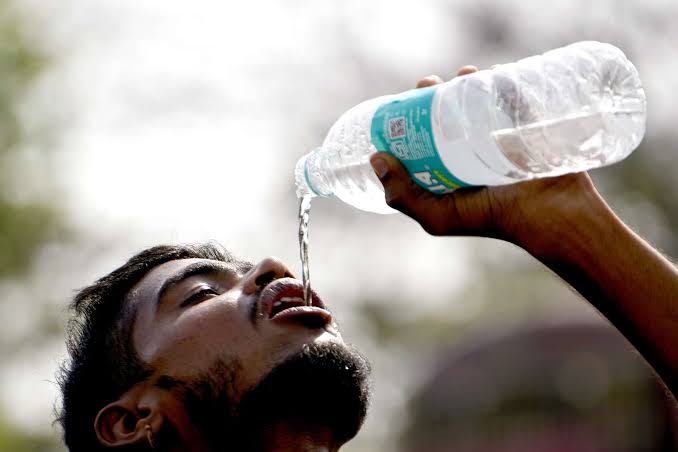The Nigerian Association of Resident Doctors has issued health safety guidelines for the heatwave currently being experienced in parts of the country.
The association made the advisory in a message posted via its X handle on Saturday.
The advisory, titled, ‘Stay safe in the heatwave,’ read, “As temperatures soar, it’s crucial to stay vigilant and take care of ourselves.”
The association warns “that the extreme temperatures could provoke ill health, endanger eutherian and may cause death. Staying safe in hot weather is essential for your well-being. Let us look out for each other and take the necessary precautions to stay healthy.”
The tips are as follows:
Stay hydrated: Drink plenty of water throughout the day to stay hydrated. Avoid excessive caffeine and alcohol, as they can contribute to dehydration.
Wear loose, light-weight and light-coloured to help your body stay cool.
Seek shade: Limit your time outdoors during the hottest part of the day, typically between 10 a.m. and 4 p.m. If you must be outside, seek shade whenever possible.
Take cool showers or baths as they can help lower your body temperature and provide relief from the heat.
Know the signs of heat-related illnesses: Be aware of symptoms such as dizziness, nausea, headache, rapid heartbeats and confusion. Seek medical attention immediately if you or someone you know experiences these symptoms.
The Nigerian Meteorological Agency had said that the excessive heat being experienced in the country presently would remain for a while.
NiMET disclosed this in its weather and climate update posted on its official X page on Wednesday.
The agency, in the post, also outlined the weather implications and guided the public on how to manage the situation.
“Air Temperatures hit 41°C over the North and 39°C over the South with model projections indicating temperatures to remain high in the coming days,” NiMET said.
The agency listed the implications of the heat, noting, “This could also cause fainting; chickenpox disease, measles, heat rash, weakness of the body, slight fever, and dry lips; heat-related illnesses; respiratory issues; and increased vulnerability to chronic conditions.”
However, NiMET advised citizens to ensure adequate fluid intake. seek shade, use fans, and wear light, breathable clothing to reduce exposure to high temperatures, amongst others.

